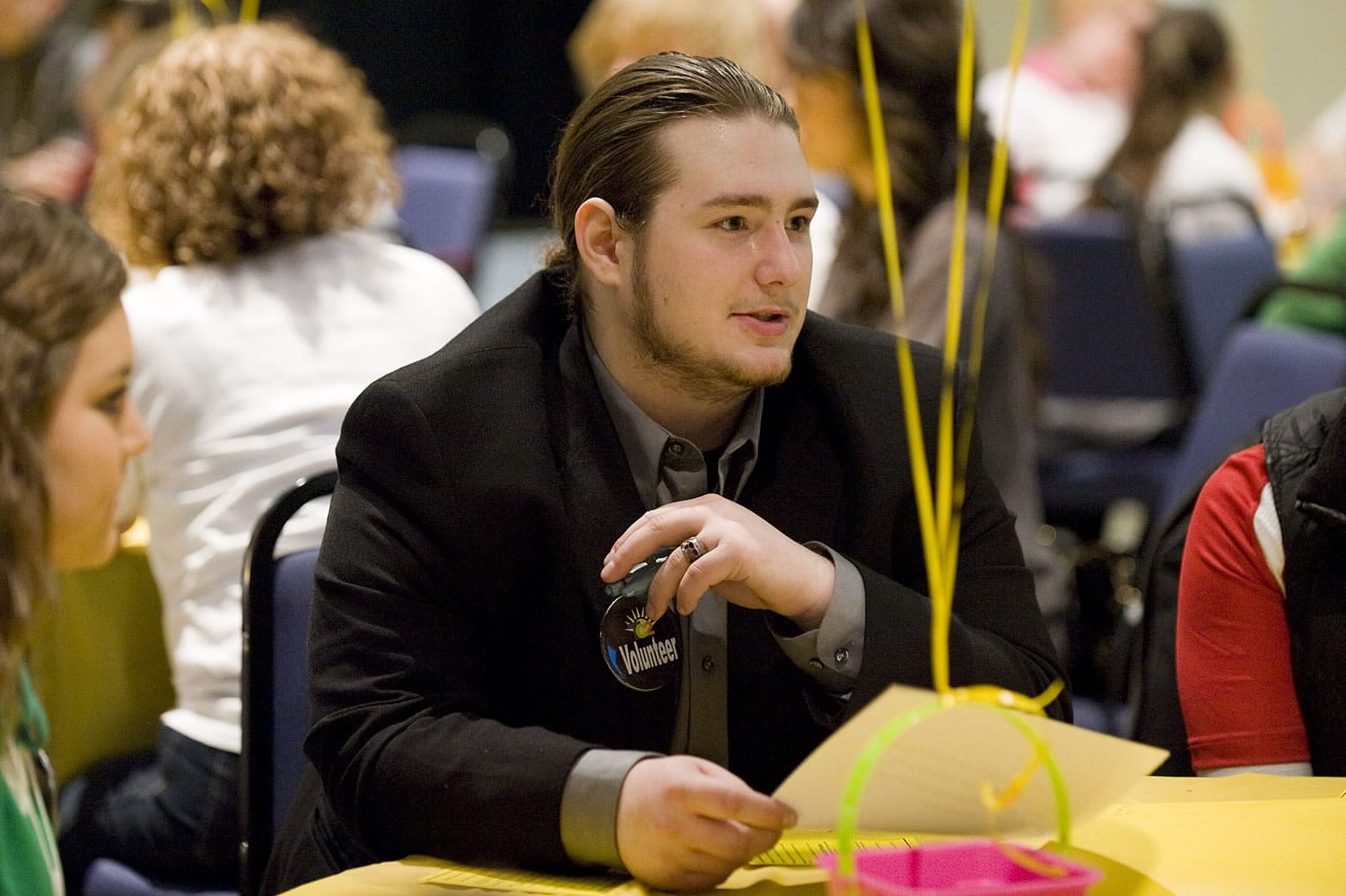The Teens Care Too Youth Prevention and Leadership Summit brought nearly 300 middle and high school students to the college campus. Its theme — youth voices, youth choices — neatly summed up what the afternoon was all about — letting the kids do the talking about how to curb drug and alcohol abuse in their ranks.
The afternoon followed that to the letter. Even though a host of luminaries — state representatives, mayors, county commissioners and city councilors — attended, most of the speeches and announcements in Gaiser Hall were made by people too young to vote.
The big crowd broke up into workshops mid-afternoon, many of which were led by adult experts. But not all.
One of them, called “Experience, Hope and Strength,” featured Jake and two of his school mates from Legacy High School in Vancouver.
Marika Neis-Steinwand spoke about post-traumatic stress disorder, a condition usually associated with combat veterans. Marika fought fierce-enough battles in her teenage years to be diagnosed with the disorder.
She was in relationships that were so abusive that even now, after receiving treatment, the young woman still can’t drive down certain roads in Clark County. The memories of events along those roads will trigger unbearable emotions.
By the time Marika checked into a hospital for fear of harming herself or others, she’d been snorting prescription painkillers and smoking heroin. It was the only way she felt she could quiet down some of the symptoms of PTSD — jumping at the sound of a slamming door, unable to sleep and generally anxious.
Logan Deeds became the target of vicious cyber bullying in eighth grade. She started getting very hostile text messages. She got depressed and suicidal.
Logan woke up in a hospital room, her father crying beside her. She’d tried to kill herself with sleeping pills.
Logan’s voice cracked as she related that scene to her workshop audience Friday.
The three students’ unflinching accounts appeared to be appreciated by the young crowd. Students at the workshop opened up about their own experiences after they heard the presenters’ tales.
And adults benefited, too. Frank Hoetker, who was recently portrayed in The Columbian for his efforts in suicide prevention, stood up when the three had finished. Hoetker’s son died of a drug overdose 14 years ago after a long battle with addiction.
Hoetker said he came to a realization during Marika’s talk.
“After all these years, little did I know that here I am suffering from PTSD,” Hoetker said. “I want to thank the organizers of this important conference. I love listening to these beautiful young children wanting to be clean.”
After the workshops, the whole crowd reconvened in Gaiser Hall for what was termed “conversation cafe.”
Students and adults gathered around round tables in small groups. Each group was given a theme in the form of a question revolving around substance abuse prevention.
This portion of the afternoon was designed and managed by students from the Prevention Club at Mountain View High School. They’d gone through extensive training with their adviser on how to create an atmosphere in which people feel safe sharing their struggles.
The adviser, Carolyn Newman, introduced the student organizers to the crowd in a brief speech.
She told the crowd that families struck by drug addiction share three common traits.
“Don’t talk, don’t feel, don’t trust,” Newman said. “But we’re here to create conversation among one another, to feel, to trust and to talk.”
It was working, apparently.
Earlier in the day, students had written their suggestions for how to prevent substance abuse in schools on sticky notes. Many of them suggested limiting the availability of alcohol and drugs in the community.
But in the discussions at the end of the afternoon, a different consensus on how to curb drug and alcohol use emerged.
“There should be more events like this,” student after student said.
Jacques Von Lunen: 360-735-4515; jacques.vonlunen@columbian.com; http://www.twitter.com/col_schools.



